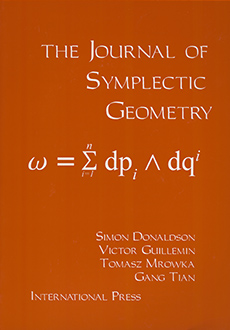Abstract
It was pointed out by Eliashberg in his ICM 2006 plenary talk that the integrable systems of rational Gromov–Witten theory very naturally appear in the rich algebraic formalism of symplectic field theory (SFT). Carefully generalizing the definition of gravitational descendants from Gromov–Witten theory to SFT, one can assign to every contact manifold a Hamiltonian system with symmetries on SFT homology and the question of its integrability arises. While we have shown how the well-known string, dilaton and divisor equations translate from Gromov–Witten theory to SFT, the next step is to show how genus-zero topological recursion translates to SFT. Compatible with the example of SFT of closed geodesics, it turns out that the corresponding localization theorem requires a non-equivariant version of SFT, which is generated by parameterized instead of unparameterized closed Reeb orbits. Since this non-equivariant version is so far only defined for cylindrical contact homology, we restrict ourselves to this special case. As an important result we show that, as in rational Gromov–Witten theory, all descendant invariants can be computed from primary invariants, i.e., without descendants.
Citation
Oliver Fabert. Paolo Rossi. "Topological recursion relations in non-equivariant cylindrical contact homology." J. Symplectic Geom. 11 (3) 405 - 448, September 2013.
Information





